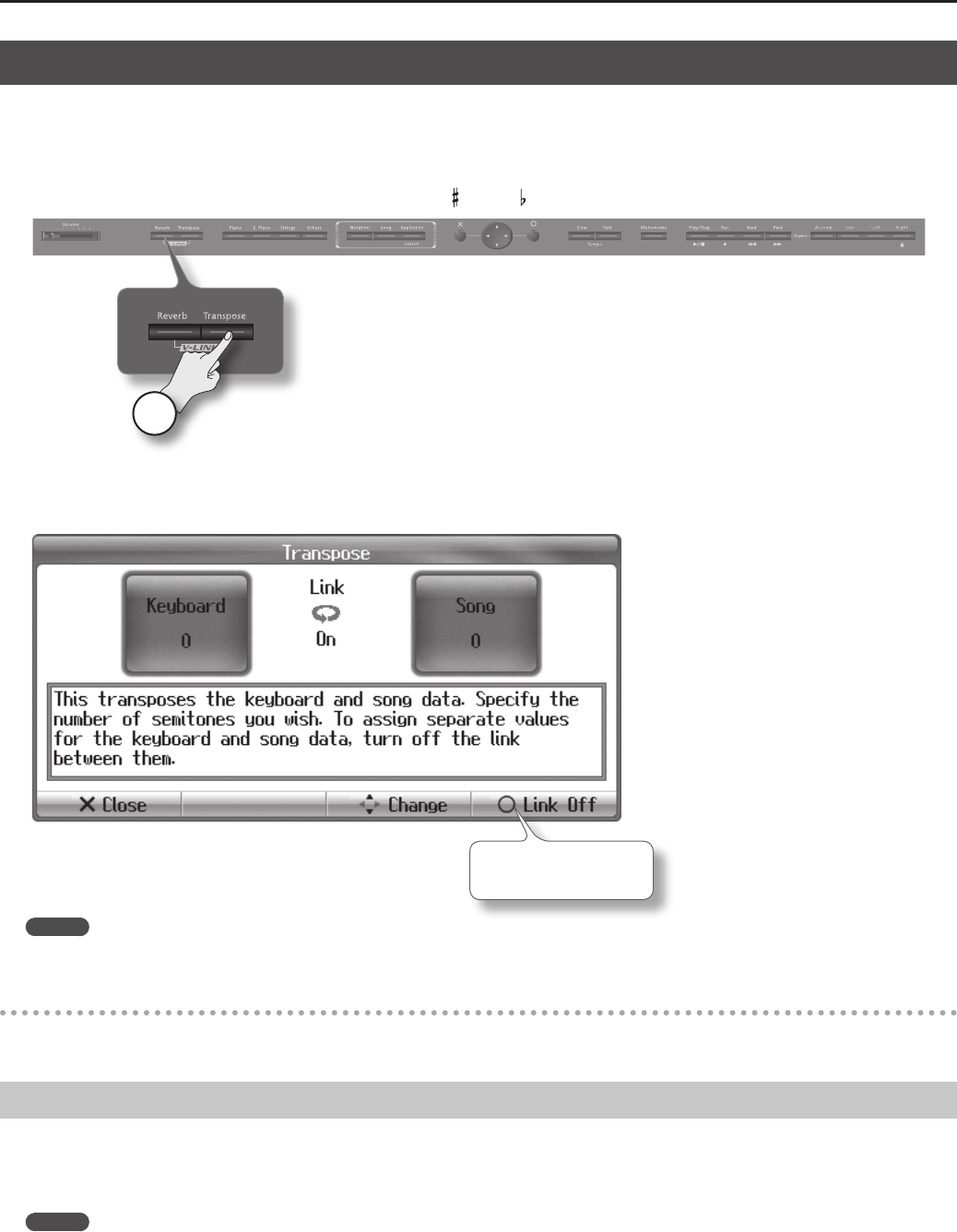
36
Performing
Changing the Key of the Keyboard or Song Playback
Changing the pitch is called “transpose.”
The “Transpose” function makes it easy to do the following.
• When accompanying a vocalist, you can transpose the pitch to a range that’s comfortable for the vocalist, while still playing the notes as written (i.e.,
with the same ngering positions).
• If a song is written in a dicult key containing numerous sharps (
) or ats ( ), you can play it in a key that’s easier for you.
1
1. Press the [Transpose] button.
The Transpose screen will appear.
If the setting is anything other than 0, the [Transpose] button will light.
[O] button
Switches “Link” on/o.
MEMO
You can use the [Transpose] button to switch the Transpose function on/o (if the transpose setting is anything other than “0”).
Example: The song is written in the key of E, but you want to play it using the ngering of the key of C
If you want the C key to produce the E pitch, set the “Keyboard” transpose setting to “+4.”
Separately Transposing the Keyboard and the Song Data
If Link is turned o, the notes played on the keyboard and the notes of the song data (notation) can be transposed separately.
1. Press the [O] button.
The Link setting will change. If Link is “o,” the keyboard and the song data can be transposed separately.
MEMO
When you switch songs or turn o the power, the transpose setting will return to “0.”


















